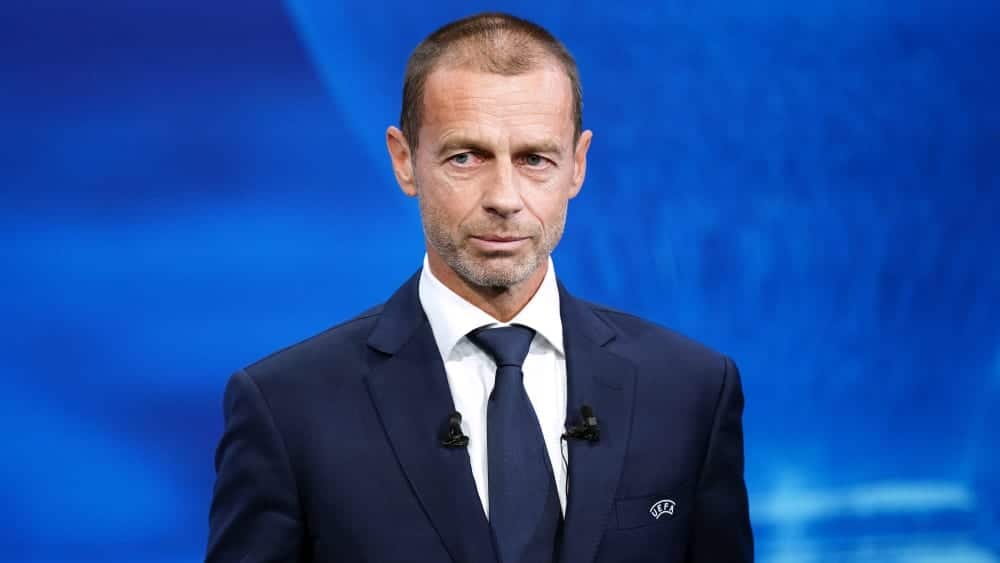The UEFA Congress vote to grant Aleksander Ceferin a new presidential candidacy is causing trouble. The Slovenian may benefit from a block vote
When the delegates of the 55 national associations meet in Paris on February 8, the first question will be whether to vote “en bloc” on the proposed changes to the statutes. If the committee is in favor, the proposal, which would also allow Ceferin to stand as a candidate in 2027 and which the DFB, among others, would welcome, will be linked to the other potential changes. This may well benefit the 56-year-old.
For example, the list also includes a proposal to secure a second, mandatory seat for women on the Executive Committee; currently, there is only one “quota seat”. A cosmetic step in terms of equality, which is necessary in view of the extremely male-dominated committee, as the past confirms. In 2023, for example, Norwegian association president Lise Klaveness deliberately did not run against Laura McAllister for the only quota “women’s seat” on the ExCo to date, but against her male rival
McAllister is currently the only woman
Klaveness, who had previously attracted attention with pithy speeches, for example on the treatment of migrant workers in the World Cup host emirate Qatar, failed resoundingly. This did not come as a surprise, as she was seen as an opponent of the establishment. However, she was quickly criticized for her withdrawal – not least because the European Union and UEFA had signed a cooperation agreement on equality, diversity and inclusion in June 2022. McAllister, elected unopposed in 2023, is currently the only woman on the Executive Committee, on which Hans-Joachim Watzke sits for the DFB.
It is therefore understandable that UEFA now wants to follow suit with a second, mandatory “women’s seat”. Anything other than a majority vote in favor is likely to draw renewed criticism. A doubly explosive vote, then, as a possible block vote would massively increase the likelihood of the amendment to the statutes regarding the extension of the term of office also going through. If the Congress decides against “en bloc”, votes will be taken individually or collectively according to topic blocks, whereby, according to UEFA, the topic of the second “women’s seat” and the term of office will then definitely be separated
Ceferin had taken over on the fly
In 2017, UEFA had set the terms of office at three in its governance reform, which was also pushed for by the DFB at the time. Ceferin had taken over from Michel Platini in a current term in 2016, so his first cycle did not last the full four years. This is now being argued by supporters of the Slovenian, who has been criticized not only because of the possible change to the statutes.





